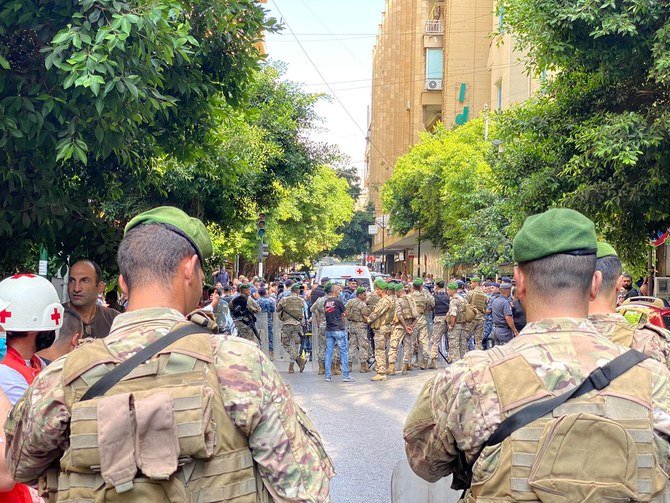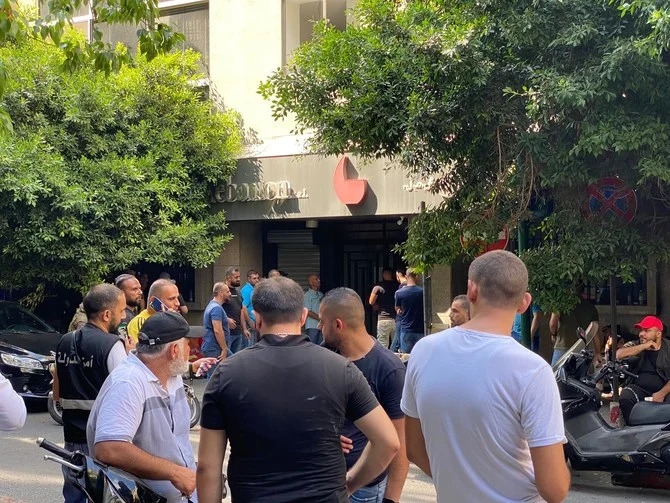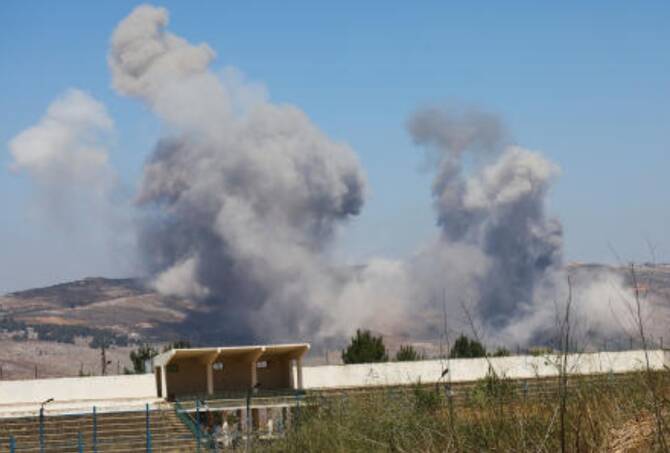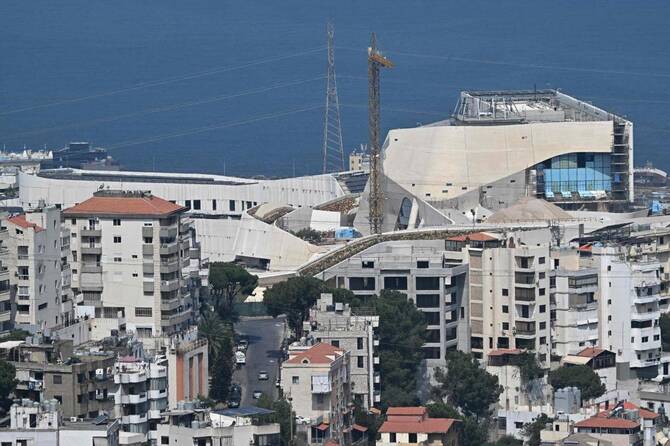Najia Houssari & Firas Haidar
Bystanders praised an armed customer who held bank staff hostage for hours on Thursday in Beirut because he could not access funds frozen after the country’s economic collapse.
The hostage situation in a bank in Lebanon’s capital ended after authorities agreed to grant the gunman partial access to his frozen funds in exchange for releasing all the hostages.
The suspect — 42-year-old Bassam Al-Sheikh Hussein — turned himself in when the bank agreed to give him $30,000 out of his more than $200,000 in trapped savings
A citizen is detaining citizens and employees at gunpoint in a bank in #Hamra Street… and the army is surrounds the place!#Lebanon #Beirut pic.twitter.com/vxudP6zgF0
— خالد اسكيف (@khalediskef) August 11, 2022
Al-Sheikh Hussein earlier took more than eight employees as hostages at Federal Bank in Hamra, Beirut.
He poured gasoline on the floor and pointed a shotgun at the employees, demanding to withdraw $2,000 from his frozen deposits, in accordance with the central bank circulars to all banks in 2019.
Army soldiers and officers from the Internal Security Forces surrounded the bank, which is situated on one of the busiest streets leading to the American University of Beirut and its medical center.
Negotiations began between the gunman and the bank’s management, first led by Hassan Mughnieh, the head of Lebanon’s Depositors Association.
They were later joined by the ISF’s information branch in the negotiations.
Caretaker Minister of Interior Bassam Mawlawi’s media office announced that he was following up the negotiations between the information branch and the Federal Bank from the ISF’s operations rooms.
Footage of Al-Sheikh Hussein first appeared on social media platforms, with the gunman shouting and demanding his cash deposit.
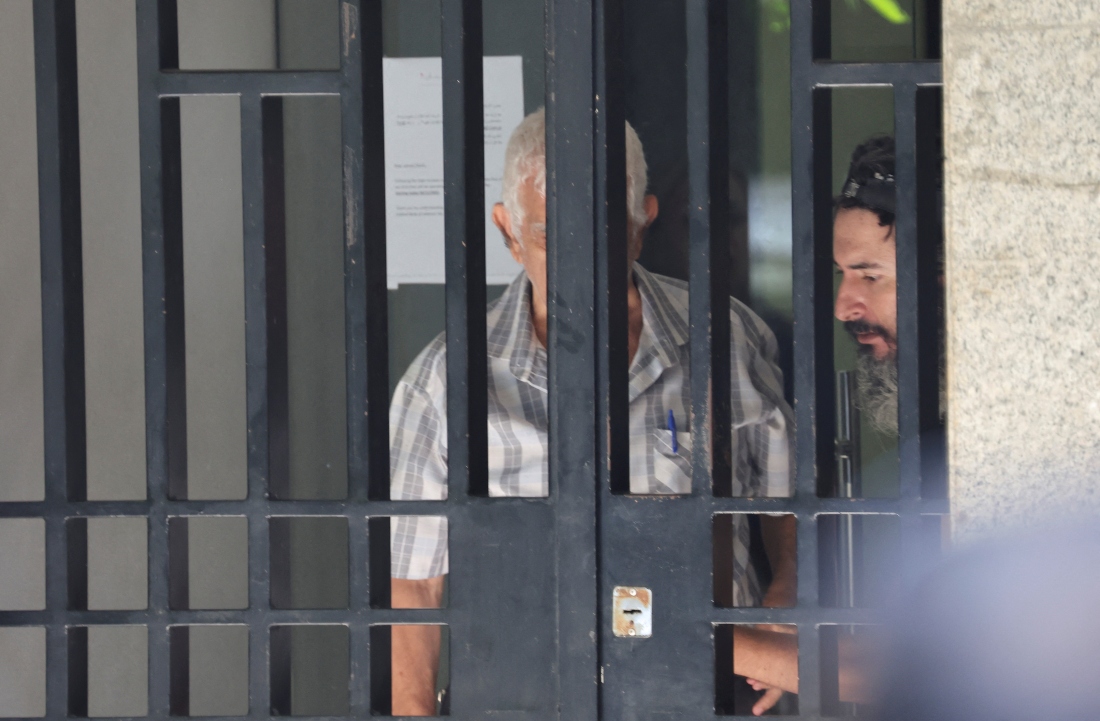
He told the bank employees that he wanted money to pay for medical bills for his father, who was receiving treatment in a hospital.
One of the bank employees filmed the scene, where the gunman was seen carrying a shotgun.
The depositor entered the bank around 11 a.m. and asked the bank’s clients to leave while keeping the employees and the bank’s branch manager Hassan Halawi inside the building.
Two clients remained inside by accident, and another employee was not detained as he was on duty outside the bank. The employee told Arab News that he was surprised to see the army and ISF surrounding the bank upon his return.



